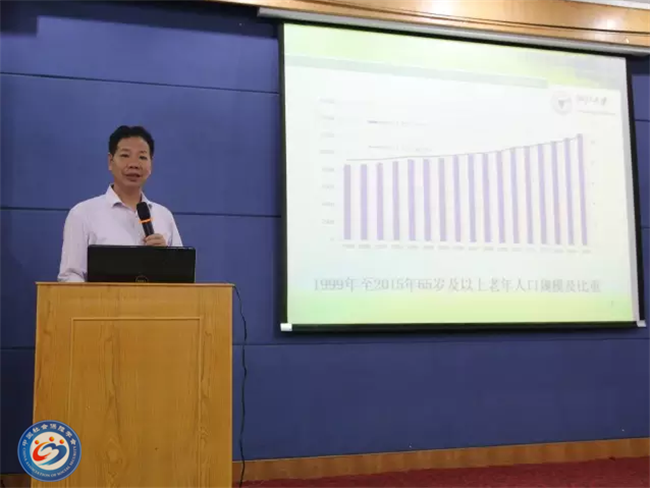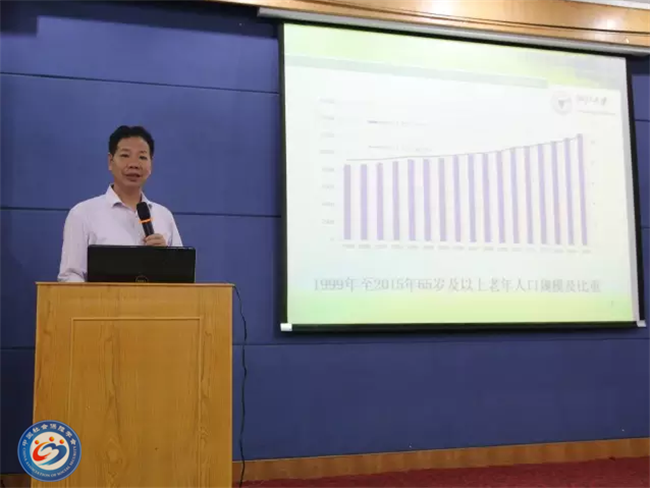鍦扮偣锛�/strong>娴欏ぇ绀剧闄紙瑗夸笁B锛�12, West Building 3B 112
鏃堕棿锛�/strong>2016骞�鏈�1鏃ワ紙鍛ㄤ簩锛�5:20-17:20
鎵垮姙锛�/strong>娴欐睙澶у鍏叡绠$悊瀛﹂櫌銆佹禉姹熷ぇ瀛︾ぞ浼氱瀛︾爺绌堕櫌
涓��娆ф床闅炬皯鍗辨満鍙婂叾褰卞搷
Europe’s Migrant Crisis and Its Implications
涓昏浜虹畝浠嬶細
 Athar Hussain is Professor and Director of the Asia Research Centre at the London School of Economics and Political Science (LSE). He has been engaged in research on Asia, including China, Vietnam and Pakistan, for over 25 years. He has served as consultant on a wide range of economic and social policy issues to numerous international and national organisations, including the World Bank, UNDP, ILO, Asian Development Bank and the Department of International Development of the UK. He is the author of numerous books and papers including Pakistani Nationalism, Demographic Transition in Asia and Its Consequences, Chinese Economic Reforms from a Comparative Perspective and Social Welfare in China in the Context of Three Transitions. The books authored or edited by him include The Chinese Economic Reforms, Transforming China’s Economy’ and Political Economy of Hunger.
Athar Hussain is Professor and Director of the Asia Research Centre at the London School of Economics and Political Science (LSE). He has been engaged in research on Asia, including China, Vietnam and Pakistan, for over 25 years. He has served as consultant on a wide range of economic and social policy issues to numerous international and national organisations, including the World Bank, UNDP, ILO, Asian Development Bank and the Department of International Development of the UK. He is the author of numerous books and papers including Pakistani Nationalism, Demographic Transition in Asia and Its Consequences, Chinese Economic Reforms from a Comparative Perspective and Social Welfare in China in the Context of Three Transitions. The books authored or edited by him include The Chinese Economic Reforms, Transforming China’s Economy’ and Political Economy of Hunger.
璁插骇鎻愯锛�/span>
In 2015 twice as many migrants arrived in the European Union (EU) as in 2014. The crisis was provoked by this sharp rise, and the response of the EU states. The impact of large number of arrivals was further accentuated by the manner of arrival of migrants. Barred from the usual transport links, aspiring migrants could only reach Europe by irregular means. This generally means crossing the Mediterranean in dangerous journeys arranged by ruthless men who see refugees as a lucrative opportunity. The journeys are not only costly, but perilous; in the fourteen years to 2014, the death toll was no less than 22,000.
What motivates such costly and perilous journeys with an uncertain outcome? Each migrant has a particular story, but the two main categories are avoiding grave risks and persecution, and escaping poverty. The distinction is not always clear-cut, but in the case of migrants arriving at European shores in recent years, the first category dominates.
"Migrants" is a very broad term which according to the UN definition includes everyone away from their regular place of residence for more than 6 months. Particularly important among migrants are refugees, those forced to flee their homes because of war or persecution. They are protected by the Geneva Convention, which thus far has 174 signatories, including China. Prompted by the aftermath of the 2nd World War, the Convention defines condition for qualification as a refugee and the obligations of the host country. All EU states are signatories, and the EU also has its own provisions.
The crisis highlights two issues; wide differences between EU member states in their response to the influx of refugees, and the problem of refugees at the global level.
In 2015, there were some 59.5 million forcibly displaced persons in the world. A rising majority are internally displaced, not international refugees. Only 20 million of that total are classified as “refugees” and looked after by the UNHCR (United Nations High Commissioner for Refugees). Displacement is a long-term state; in more than 50% of cases it has lasted over 10 years. Most international refugees are concentrated in a few countries, all of them developing economies, and most of them neighbouring the refugees' countries of origin. Rich countries bear a lighter burden of looking after refugees. The current arrangements for the care of refugees are not only inequitable but also grossly inadequate for the task.
浜屻�涓反鍏崇郴鐨勫巻鍙茬淮搴�/span>
China-Pakistan Relationship: From a Historical Perspective
 Zahid Hussain is an award-winning journalist and writer. He has been a correspondent for The Times of London and The Wall Street Journal. Hussain was Pakistan scholar at Woodrow Wilson International Centre for Scholar, Washington. D.C (2011-2012). He has also been a visiting fellow at Wolfson College, University of Cambridge (1999) and at Henry Stimson Center, Washington D.C (1994). He has authored two books: Frontline Pakistan: The struggle with militant Islam (2007- Columbia university press) and The scorpion’s tail: The relentless rise of Islamic militants in Pakistan (2010- Simon and Schuster, New York). The books have won widespread acclaim as seminal texts on the subject.
Zahid Hussain is an award-winning journalist and writer. He has been a correspondent for The Times of London and The Wall Street Journal. Hussain was Pakistan scholar at Woodrow Wilson International Centre for Scholar, Washington. D.C (2011-2012). He has also been a visiting fellow at Wolfson College, University of Cambridge (1999) and at Henry Stimson Center, Washington D.C (1994). He has authored two books: Frontline Pakistan: The struggle with militant Islam (2007- Columbia university press) and The scorpion’s tail: The relentless rise of Islamic militants in Pakistan (2010- Simon and Schuster, New York). The books have won widespread acclaim as seminal texts on the subject.
璁插骇鎻愯锛�/span>
The China-Pakistan relationship dates back to the 1950s. Since then China experienced the Cultural Revolution, followed by the economic reforms and its emergence as a global power undergone an alternating series of military and democratic governments, and radical social and economic changes. Yet the China-Pakistan relationship has remained close and accepted by all Pakistani political parties and sections of society. This raises the question of the reasons for this resilience of the China-Pakistan friendship.
The relationship has recently been invigorated with President Xi Jinping’s state visit to Pakistan, which concluded with the signing of the multi-billion dollar China-Pakistan Economic Cooperation programme (CPEC). This agreement is a central component of China’s new initiative to deepen and widen its international links, the so-called “one belt and one road” and puts the China-Pakistan relationship on a different footing.
In retrospect, the development in the 1950s of a close China-Pakistan relationship was anomalous at the time. Pakistan at that time was closely allied with the US by bilateral ties and the membership of regional alliances orchestrated by US, CENTO and SEATO. At that time China and the US had no diplomatic relations, and were each other’s number one enemy. This anomalous relationship would in the 1970s become the principal channel for diplomatic contact between China and the US and gained prominence with President Nixon’s historic visit to China.
The stability of the China-Pakistan relationship does not depend on the state of India-Pakistan relations. For a number of years China has emphasised that its friendship with Pakistan is not at the expense of its relationship with India. In fact, China’s position on Kashmir, the principal contentious issue between India and Pakistan, is the same as that of other security council permanent members, such as the US, UK and France. The relationship is sustained not by the principle of “the enemy of my enemy is my friend”, but rather by mutual advantage.

